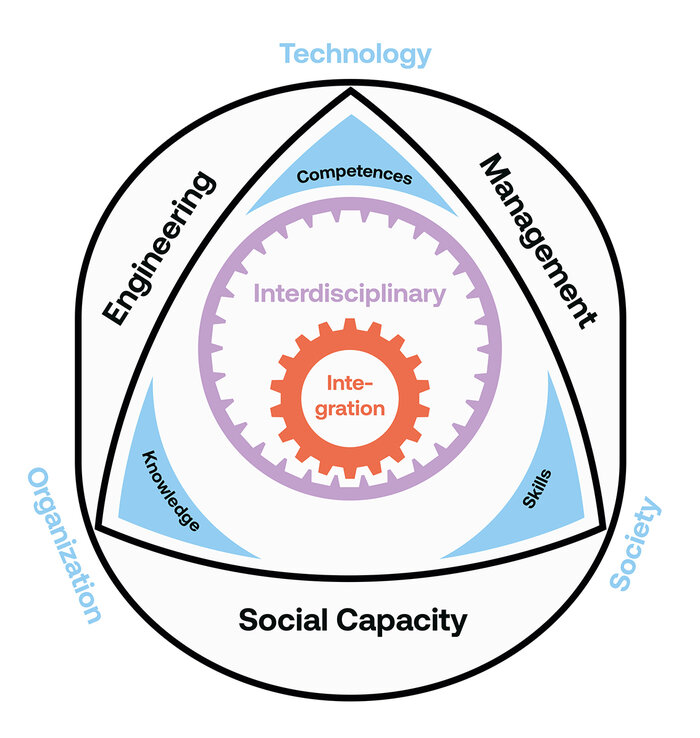Contents of studies in Engineering and Management
Sound basis and individual profile
In integrative and interdisciplinary courses, the programme combines technical, Business and Management and personality-building content.
The program lasts a total of six semesters. The first four semesters focus on technical and methodological fundamentals.
After the 3rd or 4th semester, you will strengthen your intercultural communication skills during a stay abroad (at least a two-week study trip).
The study program lasts six semesters.
In the final academic year, you can specialize in your chosen field of specialization (Product Management, Supply Chain Management or Digital Construction Process Management). By freely choosing topics, you can sharpen your individual competence profile in the Interdisciplinary Integration module.
These are your advantages:
- Coordinated and plannable attendance times (usually Fridays and Saturdays) enable optimal part-time study.
- WINGDual students benefit from the 3-year combination: a degree, extensive professional experience and attractive earnings.
- An innovative learning environment with simulation games and blended learning as well as experienced university lecturers provide a high level of technical and methodological expertise.
- During the 14-day study trip, you will gain extensive experience abroad.
- WINGDual students take further career steps in the company during their studies - a unique personal career opportunity.
- WING graduates benefit from a large professional network - unique in the Lake Constance region.
Curriculum
Elective Course: At the end of the 4th semester, you choose between the compulsory elective module
- Sustainable Product Management
- Supply Chain Management
- Digital Building and Process Management.
Flex Subjects: Part-time students choose one Flex-Subject from a catalogue per semester (except semester 5). It is also possible to take several Flex electives in one semester. A total of 10 ECTS from Flex electives must be completed over the duration of the programme.
ECTS: Performance points according to the "European Credit Transfer System". According to international standards, 180 ECTS points must be earned over 6 semesters.
Learning content in detail
E | Electives
ECTS: Performance points according to the "European Credit Transfer System". According to international standards, 180 ECTS points must be earned over 6 semesters.
Study and career: yes, it works!
Studying part-time is challenging and at the same time very rewarding. The mix of courses in presence, e-learning units, self-organized learning as well as group and project work allows you to combine study and work well. But of course this requires a high level of discipline, consistent time management and a corresponding agreement with your employer. Ideally, you should be employed at about 80%. Plan an additional ten days of vacation per year for your studies.
These measures will enable you to achieve a good balance between your studies, your job and your private life.
- Optimized scheduling with little idle time and variety in offerings. Certain weekends are usually free of classes (Easter, Pentecost, Christmas).
- Preview of contact hours and exam dates already several months in advance
- Examination dates take place - if possible - immediately after the completion of a course to avoid compressed examination situations at the end of the semester.
- Approximately 50% of the instruction takes place in groups/small groups. This creates room for individual supervision in the processing of exercise examples, case studies and projects.
- The availability of electronic media (lecture notes, eBooks, essays in subject databases) is very high and is continuously being expanded.
- The FHV is a comparatively small university. This allows a culture of open doors and short distances and individual and personal attention.





